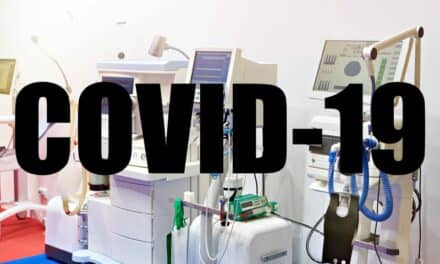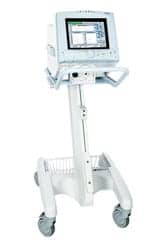Mindray, a global medical device solutions provider, launched its next-generation BeneHeart series defibrillators, the BeneHeart D60 and D30. The new BeneHeart defibrillators offer comprehensive diagnosis and monitoring tools, and introduce a whole-process quality improvement solution for both in-hospital and pre-hospital rescue.
“Defibrillators play a critical role in reducing all-cause mortality and emergencies,” says Mark Sun, general manager of Mindray International PMLS sales and marketing. “We believe that through upgrading first-aid diagnosis and treatment tools and introducing comprehensive rescue quality improvement schemes, we can ensure that prompt, correct, and high-quality medical interventions are implemented to save patients’ lives and improve their quality of life.”
The next-generation BeneHeart series defibrillators feature several upgrades designed to elevate ease of use and reliability. The high-definition capacitive large screen supports simple gesture control for increased operational efficiency, with physical knobs and buttons still available for crucial operations. Weighing less than 10 pounds with the battery, the new defibrillators come with a water-/dust-proof and drop-protection design and can operate in temperatures ranging from -20°C to 55°C.
Equipped with the patented QShock and filtered ECG analysis technologies that shorten the charging and interruption time for faster defibrillation, the new BeneHeart D60 and D30 offer a comprehensive CPR evaluation system to monitor real-time CPR performance, from both operational process and effect, providing instant feedback for clinicians.
The new BeneHeart defibrillators also come with structured debriefing protocols that support automatic rescue data recording and uploading to help improve resuscitation teams’ performance in the long run, as well as single and multi-person training modes that support hands-on CPR and defibrillator operation.
The Mindray BeneHeart D60 also offers multiple diagnosis and analysis functions for complex pre-hospital environments. The model offers professional 12-lead ECG analysis functions with intelligent assistance to help diagnose chest pain conditions and identify myocardial infarction locations, and a six-channel recorder generating real-time ECG reports.
Its point-of-care ultrasound function provides step-by-step trauma identification tools, operation guides, and reference images. These diagnosis reports can be sent remotely to the target hospital, allowing for advanced treatment planning to save the lives of critically ill patients.
“Emergency care demands no less than the highest requirement of efficiency and effectiveness to save a patient’s life,” Sun says. “With the new BeneHeart defibrillation solution, a combination of diagnosis, monitoring, and treatment solutions for emergencies, we aim to unlock the full potential to help clinicians quickly and confidently navigate the difficult situations they encounter.”





